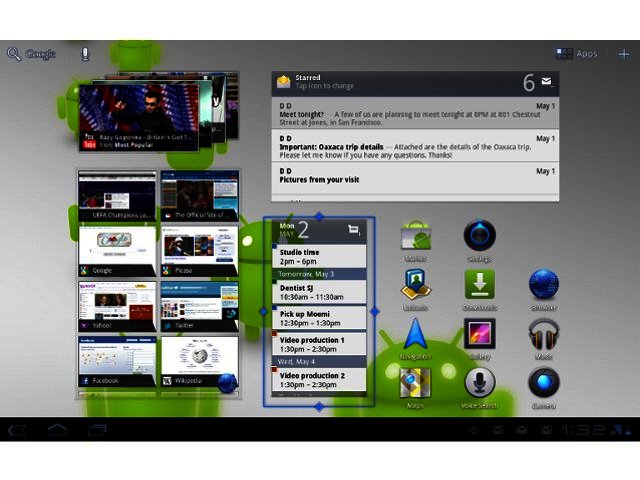Android 3.2 becomes official
By Hanleigh Daniels 18 July 2011 | Categories: news
As expected, Google has announced the latest version (3.2) of its Android mobile operating system (OS), along with its updated software development kit (SDK) toolset.
According to an Android Developers blogpost by Xavier Ducrohet, Google’s Android SDK tech lead, this is “an incremental release that adds several new capabilities for users and developers. The new platform includes API changes and the API level is 13.”
New user features
Some of the new features that users can expect include optimisations for a wider range of tablets. These include a variety of optimisations across the system in order to ensure an enhanced user experience on a wider range of tablet devices.
The latest update introduces a new compatibility zoom mode, which gives tablet users a new way to view fixed-sized apps on larger devices. This new mode provides a pixel-scaled alternative to the standard UI stretching for apps that are not designed to run on larger screen sizes, the likes of tablet displays. The new mode is accessible to users from a menu icon in the system bar, for apps that need compatibility support.
On devices that support an SD card, users will now be able to load media files directly from the SD card to apps that utilise these. A system facility makes the files accessible to apps from the system media store.
New features for Android developers
Besides the new functionality that will become available to users via this update, Android developers can also look forward to some added features. Android 3.2 introduces extensions to the platform’s screen support API, which provides developers with additional ways to manage application UI across the range of Android-powered devices.
The API includes new resource qualifiers and new manifest attributes that give them improved control over how their Android apps are displayed on different screen sizes, as opposed to relying on generalised size categories.
Google’s latest Android platform also delivers a new zoom compatibility mode, which renders the user interface (UI) on a smaller screen area, then scales it up to fill the space available on the display.
Developers can start to develop and test apps for this new platform, by downloading it into their SDK using the Android SDK Manager.
Google also recently announced the local launch of its Student Ambassador Programme, set up to empower the African academic community with knowledge, infrastructure and the tools to access information easily and effectively.
Most Read Articles

Have Your Say
What new tech or developments are you most anticipating this year?



